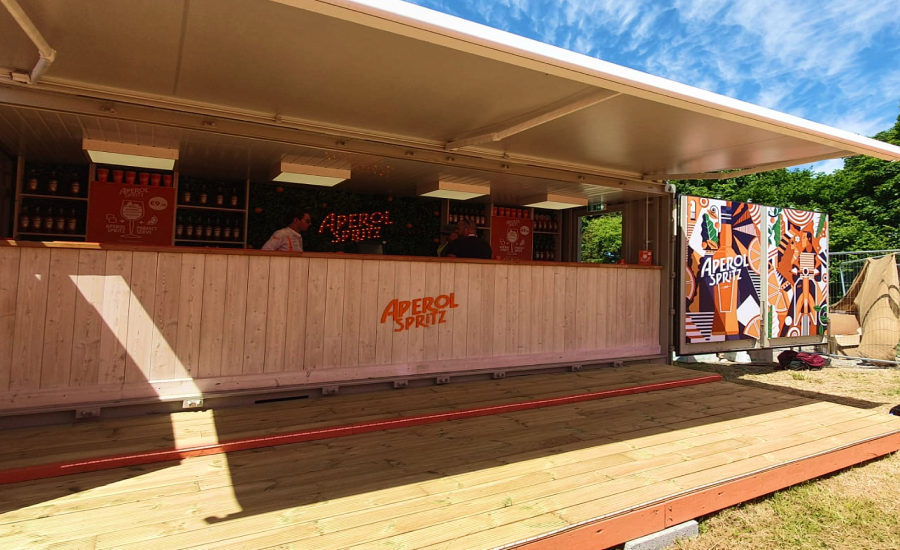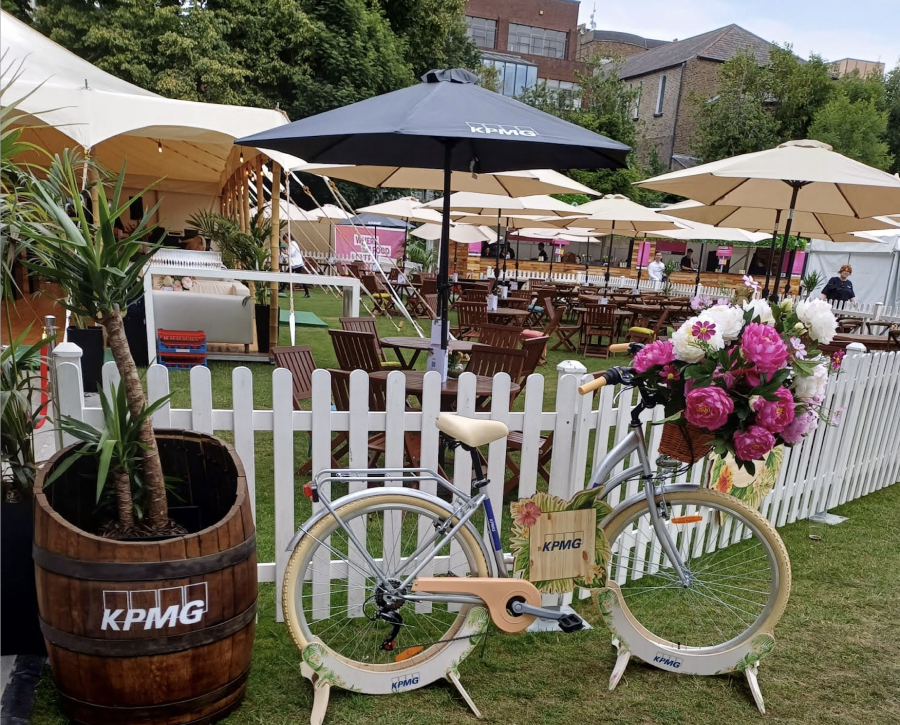Planning an outdoor event in Ireland involves a unique set of considerations compared to those which take place indoors. The outdoors in Ireland can be unpredictable, and planning an event comes with challenges that are essential to address in the planning and production stages.
Outdoor events are hugely popular across Ireland, the UK, and Europe, throughout the year. Some events naturally suit the outdoors due to nature, size, or type of event. Fresh air is compelling, but organisers must anticipate and navigate the challenges posed by weather, location accessibility and environmental impact.
Logistical foresight is the bedrock of any successful outdoor gathering. Event planners need to assess the suitability of the site, ensuring it can accommodate the expected footfall and provide robust infrastructure, such as power and water supply. Licences, permissions from local authorities, and a thorough risk assessment are crucial steps that should not be overlooked.
Understanding Ireland’s climate
When planning an outdoor event, it is crucial to consider potential rainfall and prepare accordingly. Checking long-range weather forecasts is advisable, keeping in mind that conditions can change rapidly. Seasons in Ireland can be broken down into four distinct periods:
- Spring (February to April): Characterised by unpredictable weather, with a mix of rain, sunshine and sometimes late frosts.
- Summer (May to July): Generally the driest and warmest season, yet still quite unpredictable with occasional rain showers.
- Autumn (August to October): Marks a gradual transition from the mild summer into a cooler and wetter end of the year, with colourful foliage displays.
- Winter (November to January): The coldest season, expecting more persistent rainfall, ice, and sometimes even sleet. It isn’t advisable to run an outdoor event during the winter, unless it’s seasonal such as Christmas events.
Defining the Outdoor Event Purpose and Objectives
Defining the Purpose and Objectives is a critical step in the planning process where organisers establish a solid foundation for the event. This involves setting clear aims and developing a successful event theme. The purpose and objectives of an event are its backbone. They serve to guide decisions and evaluate success.
- Purpose: Establish why the event is being held. Is it to educate, celebrate, promote, or raise funds?
- Objectives: Set specific, measurable, achievable, relevant, and time-bound (SMART) objectives. For example, “Increase brand awareness by 15% within six months post-event” or “Raise €10,000 for charity on the event day”.
Event Venue and Logistics
In outdoor event planning, the choice of venue greatly influences the success of the event, entailing logistical considerations such as facility requirements and transport accessibility.
Choosing the Event Location
Selecting the appropriate venue is paramount. The location must align with the event’s theme, capacity, and attendees’ expectations. For example, corporate retreats may benefit from a tranquil park setting, while music festivals require ample open space with few noise restrictions.
Urban areas in Ireland provide are easily accessible, but have their own constraints, such as parking. Dublin, for example, offers plent of green spaces and parks, primes location with lush grounds with transport to and from the city. When it comes to more rural settings on the outskirts of towns in Ireland, there are many locations that offer ample outdoor space and a history of events. One of the largest outdoor events in Europe, the National Ploughing Championships, is held in Ratheniska, Co. Laois, Ireland later this year.
Facility Requirements
A comprehensive assessment of facility needs ensures adequate support for the event. This typically includes:
- Power Supply: Assess on-site electricity availability or the need for generators.
- Amenities: Provide restrooms, seating, and food service points.
- Safety Infrastructure: Arrange first aid stations, emergency exits, and security personnel.
- Weather Considerations: Plan for shelters or marquees in case of adverse weather conditions.
Transport and Access
Accessibility is crucial for attendees and service providers. Key points include:
- Parking: Information on the number of spaces and proximity to the venue is vital.
- Public Transport Links: Details of nearby bus, train, or subway stations should be clearly communicated.
- Special Access: Routes for individuals with disabilities must be considered and clearly marked.
Promotion and Engagement
Promotion and engagement are vital for the success of outdoor events. They encompass strategies to market the event and ways to maintain audience interest.
Marketing Strategy
Target Audience Identification: To effectively market an outdoor event, organisers must first identify their target audience. This involves analysing demographic information such as age, location, and interests to tailor promotional activities.
Channels of Promotion: Utilising a mix of traditional and digital media channels ensures a broad reach. Key platforms may include:
- Social media (e.g., Facebook, TikTok, Instagram)
- Local press and radio
- Online event calendars
- Outdoor advertising (e.g., billboards, bus stops)
Audience Engagement
Pre-Event Engagement: Prior to the event, engagement can build anticipation and maintain interest. Organisers might consider:
- Competitions and giveaways
- Interactive social media campaigns
- Sneak peeks of event preparations or attractions
During the Event: Live engagements can amplify the audience’s experience. This may encompass:
- Real-time social media updates
- Interactive displays or workshops
- Voting for certain aspects of the event (e.g., best exhibit)
Post-Event Follow-Up: After the event, maintaining dialogue ensures lasting connections with the audience. It can include:
- Thank-you messages
- Surveys and feedback forms
- Highlights and media from the event to encourage sharing
Organisers should prioritize consistent communication before, during, and after the outdoor event to maintain participant engagement and lay the groundwork for future events.
Acquiring Necessary Permits and Insurance
When planning an outdoor event in Ireland, it is crucial to secure the appropriate permits and insurance. This process ensures the event adheres to local regulations and has necessary financial protections in place.
Outdoor –Event Permits
To host a public event in Ireland, one must obtain an event permit from the relevant local authority. The type and scope of the event will dictate the specific permits required. Below is a checklist for acquiring event permits:
- Initial Application: Contact the local council for an application form.
- Documentation: Provide detailed plans of the event, including location, expected attendance, and facilities.
- Fees: Pay any associated application fees—these vary by location and event size.
- Approval Time: Submit applications well in advance, as approval can take several weeks.
Public Liability Insurance
Public liability insurance is necessary to protect against claims of property damage or personal injury. Key aspects include:
- Coverage Amount: Ensure the policy covers the scale of the event.
- Provider: Choose a reputable insurance company specialising in event coverage.
- Policy Details: Confirm the policy includes all event-related activities and third-party vendors.
- Proof of Insurance: Have a certificate of insurance ready to present to the local authorities or other stakeholders.




